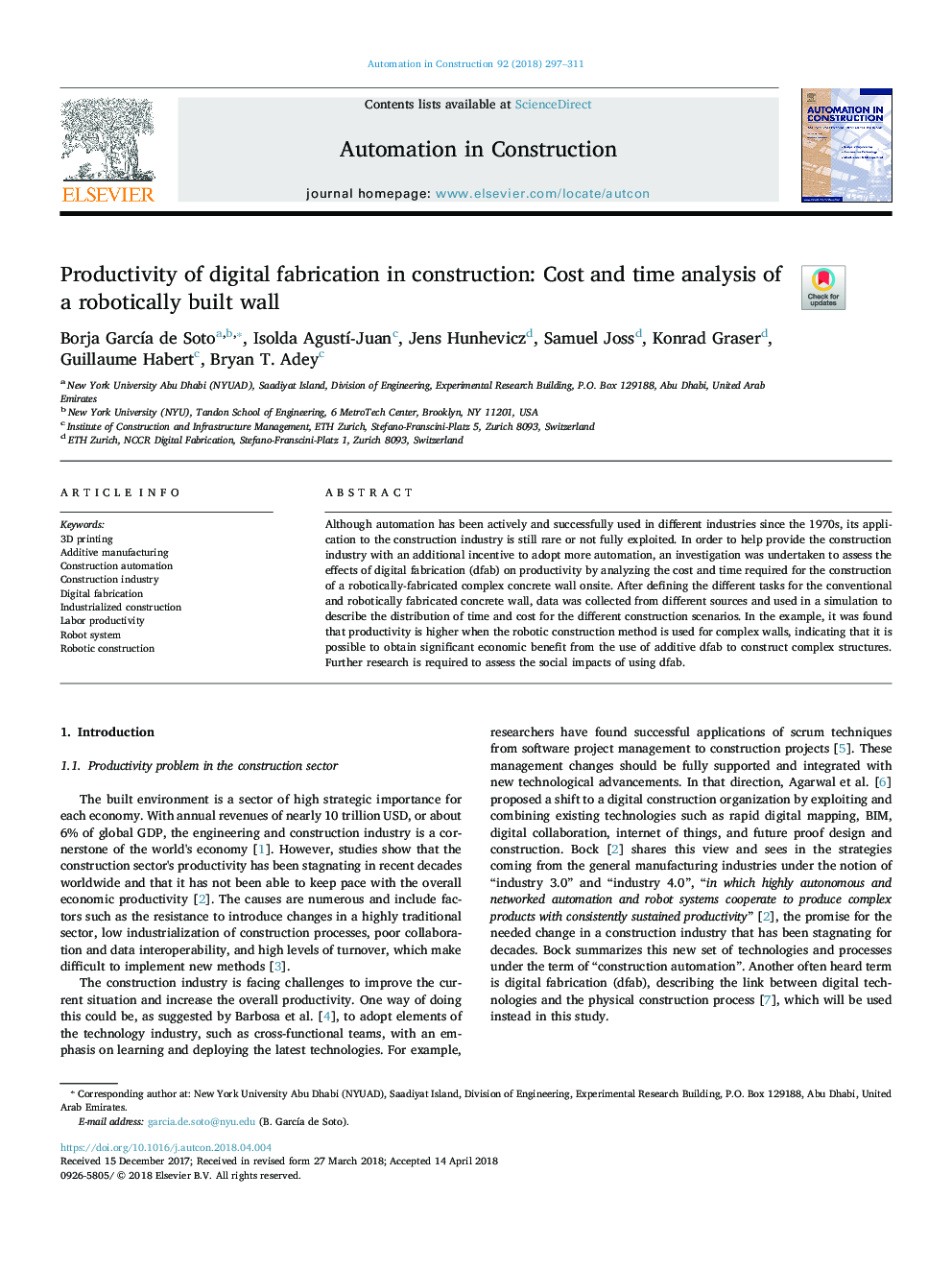| Article ID | Journal | Published Year | Pages | File Type |
|---|---|---|---|---|
| 6695474 | Automation in Construction | 2018 | 15 Pages |
Abstract
Although automation has been actively and successfully used in different industries since the 1970s, its application to the construction industry is still rare or not fully exploited. In order to help provide the construction industry with an additional incentive to adopt more automation, an investigation was undertaken to assess the effects of digital fabrication (dfab) on productivity by analyzing the cost and time required for the construction of a robotically-fabricated complex concrete wall onsite. After defining the different tasks for the conventional and robotically fabricated concrete wall, data was collected from different sources and used in a simulation to describe the distribution of time and cost for the different construction scenarios. In the example, it was found that productivity is higher when the robotic construction method is used for complex walls, indicating that it is possible to obtain significant economic benefit from the use of additive dfab to construct complex structures. Further research is required to assess the social impacts of using dfab.
Keywords
Related Topics
Physical Sciences and Engineering
Engineering
Civil and Structural Engineering
Authors
Borja GarcÃa de Soto, Isolda AgustÃ-Juan, Jens Hunhevicz, Samuel Joss, Konrad Graser, Guillaume Habert, Bryan T. Adey,
